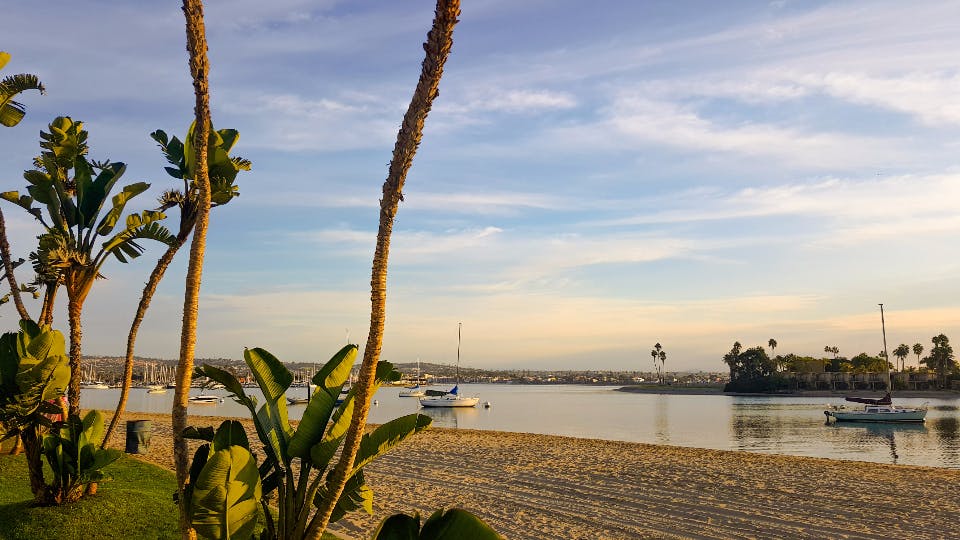
How to Get a Florida Alcohol or Tobacco License
This guide is for informational purposes only. SuretyBonds.com does not regulate or manage alcoholic beverage and tobacco licenses in Florida. Contact the Florida DBPR Division of Alcoholic Beverages & Tobacco for the latest official requirements.
How to Get a Florida Alcohol or Tobacco License
All businesses in Florida need to be licensed to legally sell, manufacture, or distribute alcohol and tobacco products. Depending on the type of business you own, the required license type varies.
For example, a restaurant that wants to sell alcohol for on-premises consumption needs a different license than a grocery store wanting to sell packaged liquor and tobacco.
Verify the license type you need with the Florida Department of Business and Professional Regulation (DBPR). Then, follow the steps in this guide to get licensed.
Which Alcohol and Tobacco Licenses Require a Surety Bond?
Only distributors and wholesalers require a surety bond to get licensed in Florida. This protects the state by guaranteeing payment for all taxes on the products they sell.
If your business is getting licensed as one of the following in the state of Florida, you’ll need to get a surety bond:
- Alcoholic beverage distributor
- Alcoholic beverage manufacturer
- Cigarette distributing agent
- Cigarette wholesale distributor
- Tobacco product wholesaler distributor
The required bond amounts vary depending on license type and size of business. If you have multiple licenses, Florida law requires you to file a separate bond for every license or permit type.
How to Apply for an Alcohol or Tobacco License in Florida
The application process for an alcoholic beverages or tobacco license is typically the same for all variations. However, you will need to submit an additional application for each specific type of license that your business requires.
Follow these four steps to apply for your Florida tobacco, cigarette or alcoholic beverage license.

Step 1: Determine your eligibility
There are some requirements on who can become a licensed alcoholic beverages or tobacco seller. To be eligible, you must:
- Be at least 21 years old
- Display good moral character
- Have not violated any beverage laws in the past 5 years
- Have not been convicted of a felony in the past 15 years
If your business is not eligible for a license because of a recent felony conviction, you can appeal the decision with the DBPR.
Step 2: Complete the application
Next, fill out the appropriate license application form and mail it to your county’s division district office with all supporting documents.
You’ll need to gather the following materials:
- Health and H&R approval
- Proof of zoning approval
- Personal questionnaires for all officers, directors, or shareholders
- Social security numbers of all applicants
- Business registration number
- Federal employer’s identification number
- Proof of right to occupancy
- Management contracts
- Service agreements
- Sketch of premise
- Application fee
- Proof of a surety bond, if required
All parties must also get proof of fingerprinting to include in the application.
If there are no apparent problems with your application, you will be issued a temporary license. This temporary license will expire once the DBPR makes a decision regarding your application.
Step 3: Review and inspections
Before your application is approved, the site director of your division district office will thoroughly review your application.
This will include a site inspection of all premises and business locations. The complete approval process typically takes 1–3 months.
Step 4: Approval
If your application and site inspection meet the requirements and there are enough available licenses, your business will be approved for a license.
Pay the initial licensing fee to receive your official license documentation.
How Many Businesses Can Get Alcohol and Tobacco Licenses?
There are not unlimited alcoholic beverages and tobacco licenses available. Each county only allows 1 license for every 7,500 residents, or a maximum of 3 licenses if the county's population is less than 22,500.
When there are more applicants than licenses available, the director of your division district office will draw names to determine the order in which applications will be evaluated. Licenses will be issued to the approved candidates 180 days after the drawing is held.
However, establishments with at least 51% in food and non-alcoholic beverage sales can qualify for a special 4COP/SFS license. These licenses are much more affordable and there is no limit to how many of these licenses can be issued.
How to Renew Your Alcoholic Beverages and Tobacco License
All alcoholic beverages and tobacco licenses last for one year and must be renewed annually by March 31. The renewal fee will be included in the renewal notice and can be paid online, over the phone, or by mail.
You can renew your license over the phone or by mail, as long as the notice of renewal is postmarked before the deadline.
If you don’t renew your license by March 31, you will be charged a delinquent renewal penalty. This penalty is either $5 a month or 5% of the license fee, whichever is greater.
Can I Update My License Information at Renewal?
When renewing your license, you are not allowed to make any changes to your license except for the mailing address.
For example, a change of location or ownership would require a new application and can’t be achieved via the renewal process.
Last Updated: May 16, 2025
